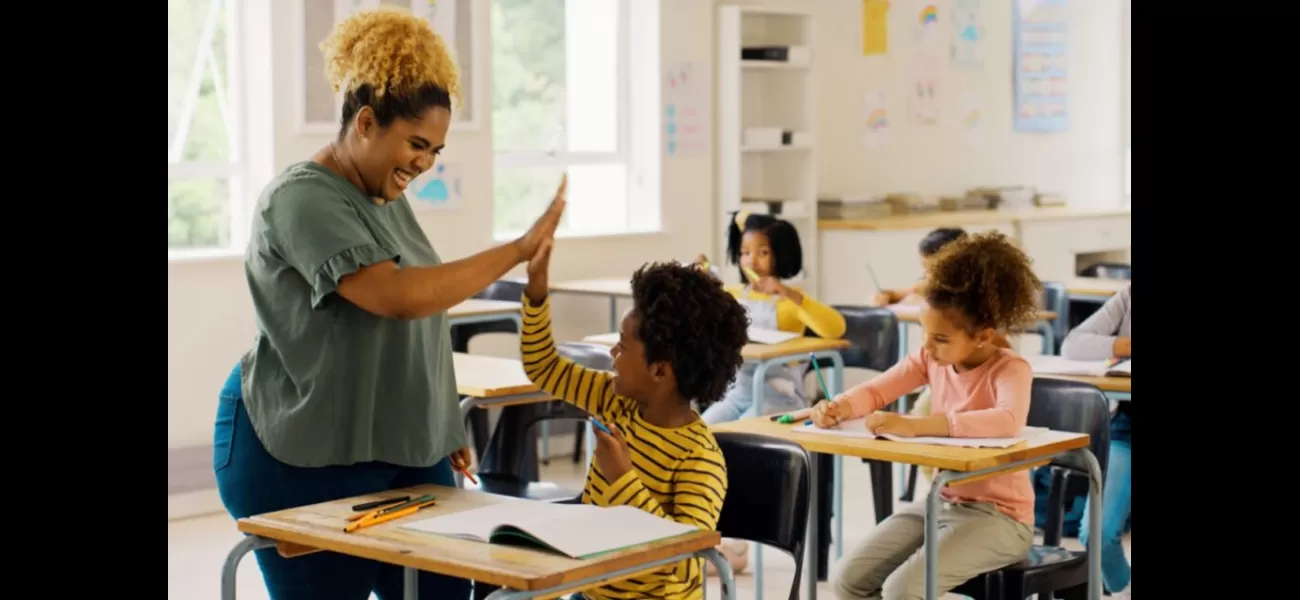NYC students to learn Black studies this autumn
Teachers College at Columbia University's president, Thomas Bailey, aims to promote equality through the curriculum.
July 30th 2024.

New York City's Education Equity Action Plan is making a big change in the city's schools - students will now be introduced to Black studies. The Gazette reported that this is thanks to a collaboration between New York's Department of Education, City Council, and the Education Action Plan, along with the Columbia Teachers College Black Education Research Center. Together, they have developed a new curriculum called "Black Studies as the Study of the World: A PK-12 Black Studies Curriculum for New York City Public Schools."
The goal of this curriculum, according to Thomas Bailey, the president of Teachers College at Columbia University, is to create a more equitable society. In an interview with the Staten Island Advance, Bailey stated, "Building a more equitable society begins with education. The launch of the new Black Studies curriculum, developed by TC's Black Education Research Center, is a crucial step in this effort." He also highlighted the college's history of adapting teaching methods and curricula to meet the needs of all students in inclusive and supportive environments.
City Schools Chancellor David C. Banks also shared his thoughts on the new curriculum with The Gazette, emphasizing the importance of students seeing themselves and their culture reflected in their education. "Every student should see their identity and history in their education," Banks said. "I am delighted to witness the culmination of this significant initiative in our schools. The Black Studies Curriculum's comprehensive and integrated approach will deepen our students' awareness of themselves and their communities."
New York City is known as a cultural melting pot, with various Black cultures coexisting. Linda Tillman, chairman of the advisory board of the Black Education Research Center, explained to Education Week that it was crucial for these cultural touchstones to be included in the curriculum in order to combat misconceptions about the history of Black people around the world.
At the American Educational Research Association's annual conference, M.C. Brown, executive director of the Thurgood Marshall College Fund, described the curriculum as a "nationally historic moment." Brown praised the curriculum for acknowledging the history and contributions of Black Americans that predate slavery, and for providing a paradigm for effective implementation not just in New York City, but around the world.
Joyce King, chair for Urban Teaching, Learning, and Leadership at Georgia State University, also spoke at the conference about the importance of Black studies. "Black studies started out with a pedagogical mission, not just content," King said. "That includes inspiring people to learn deeply and critically about the African diaspora histories and contemporary social formation, to recognize and affirm our peoplehood - that we are a people across many different cultures."
This is a significant step towards equity and representation in education, as highlighted by the recent ban on hair discrimination in school dress codes targeting Black students in Illinois. It is crucial for students to see themselves and their history reflected in their education, and the new Black Studies curriculum in New York City is a step in the right direction.
The goal of this curriculum, according to Thomas Bailey, the president of Teachers College at Columbia University, is to create a more equitable society. In an interview with the Staten Island Advance, Bailey stated, "Building a more equitable society begins with education. The launch of the new Black Studies curriculum, developed by TC's Black Education Research Center, is a crucial step in this effort." He also highlighted the college's history of adapting teaching methods and curricula to meet the needs of all students in inclusive and supportive environments.
City Schools Chancellor David C. Banks also shared his thoughts on the new curriculum with The Gazette, emphasizing the importance of students seeing themselves and their culture reflected in their education. "Every student should see their identity and history in their education," Banks said. "I am delighted to witness the culmination of this significant initiative in our schools. The Black Studies Curriculum's comprehensive and integrated approach will deepen our students' awareness of themselves and their communities."
New York City is known as a cultural melting pot, with various Black cultures coexisting. Linda Tillman, chairman of the advisory board of the Black Education Research Center, explained to Education Week that it was crucial for these cultural touchstones to be included in the curriculum in order to combat misconceptions about the history of Black people around the world.
At the American Educational Research Association's annual conference, M.C. Brown, executive director of the Thurgood Marshall College Fund, described the curriculum as a "nationally historic moment." Brown praised the curriculum for acknowledging the history and contributions of Black Americans that predate slavery, and for providing a paradigm for effective implementation not just in New York City, but around the world.
Joyce King, chair for Urban Teaching, Learning, and Leadership at Georgia State University, also spoke at the conference about the importance of Black studies. "Black studies started out with a pedagogical mission, not just content," King said. "That includes inspiring people to learn deeply and critically about the African diaspora histories and contemporary social formation, to recognize and affirm our peoplehood - that we are a people across many different cultures."
This is a significant step towards equity and representation in education, as highlighted by the recent ban on hair discrimination in school dress codes targeting Black students in Illinois. It is crucial for students to see themselves and their history reflected in their education, and the new Black Studies curriculum in New York City is a step in the right direction.
[This article has been trending online recently and has been generated with AI. Your feed is customized.]
[Generative AI is experimental.]
0
0
Submit Comment





